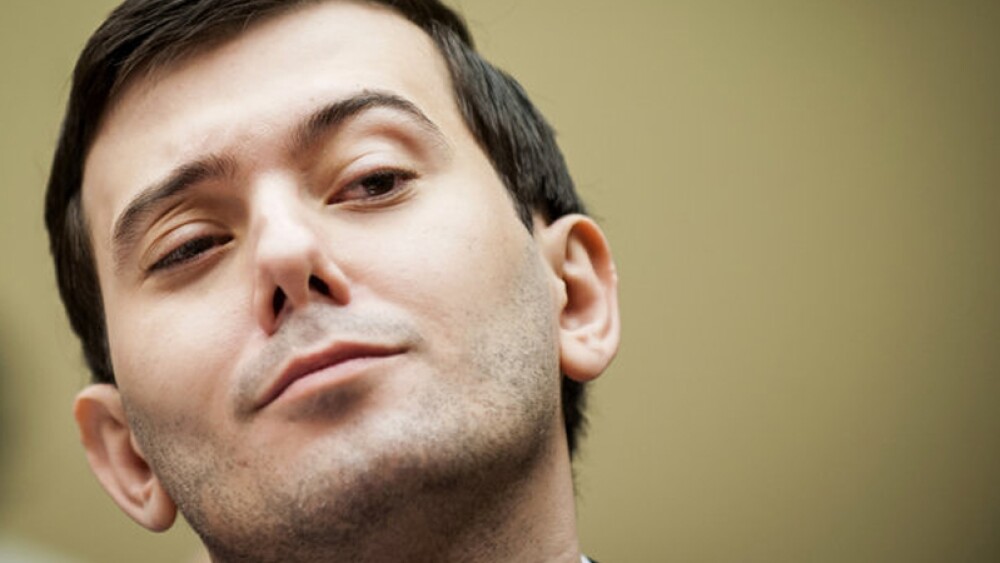August 4, 2017
By Alex Keown, BioSpace.com Breaking News Staff
NEW YORK – Notorious pharmaceutical entrepreneur Martin Shkreli has been found guilty on two charges of securities fraud and one charge of conspiracy to commit conspiracy fraud.
The jury handed down its verdict Friday afternoon after five days of deliberation. Shkreli was not guilty on two counts of conspiracy to commit securities fraud and three counts of conspiracy to commit wire fraud. Shkreli now faces up to 20 years in prison.
Shkreli though remained unrepentant after the trial. Speaking to reporters outside the courthouse in Brooklyn, Shkreli called the trial a witch hunt and added that maybe the prosecution “found one or two broomsticks,” CNN reported. Shkreli’s attorney Benjamin Brafman hinted at seeking an appeal, CNN added. If not a successful appeal, Brafman suggested that Shkreli will not be given a stiff jail sentence, Endpoints News said.
Before the trial began earlier this year, Shkreli had maintained his innocence of the charges and bragged on social media that he would be found not guilty.
While Shkreli is most notoriously known for acquiring the toxoplasmosis drug Daraprim and spiking the price by 5,000 percent, that is not what he was on trial for this summer. In December 2015, the federal government charged him with eight counts of securities fraud, securities fraud conspiracy and wire fraud conspiracy. According to the indictment against Shkreli, he and his partners, including attorney Evan Greebel, orchestrated three interrelated fraudulent schemes—a scheme to defraud investors and potential investors in MSMB Capital; a scheme to defraud investors and potential investors in MSMB Healthcare; and a scheme to defraud Retrophin , the company Shkreli founded. The indictment said Shkreli’s scheme, which caused his investors to suffer a loss of more than $11 million, was carried out over a five-year period, from 2009 to 2014.
Shkreli argued that it was his infamy that was on trial. Earlier this year, Shkreli said he would not be facing these charges had it not been for the ridicule he faced after the price hike, when he earned the moniker “the most hated man in America.”
It was that charge of defrauding Retrophin that Brafman may have been most concerned about—a charge for which Shkreli was found not guilty. In fact, Shkreli suggested a not guilty verdict would be returned within the first two hours of deliberations—a prediction he missed by four additional days.
Brafman maintained that Shkreli ultimately made his investors rich and never intended to defraud anyone. During the trial, Brafman never called any witnesses to testify on behalf of Shkreli. Instead, he focused on the fact that fraud requires a legal determination that an accused individual must knowingly commit fraud. Brafman argued that Shkreli ultimately paid back his investors with shares of Retrophin, which later became valuable, the New York Times noted in its report. Brafman argued that although Shkreli hit some serious snags while running his hedge funds that he ultimately paid his investors back – although late, the Times added.
Regarding Retrophin, a company that ultimately dismissed Shkreli from his top position, Brafman said the defendant worked hard on making the company successful and in the meantime was able to pay his MSMB investors back through that success. Brafman argued that Shkreli’s investors earned triple what they put into the funds, the Times said. In August 2015, Retrophin sued Shkreli for $65 million over his use of company funds while helming that company. In its lawsuit, Retrophin said Shkreli breached his duty of loyalty to the biopharmaceutical company and he engaged in self-dealing and also seeks disgorgement of money paid to him.
Since his arrest, Shkreli resigned his position at Turing Pharmaceuticals and was removed as chief executive officer of California-based KaloBios , a company he acquired in late 2015. Before the trial began, Shkreli had been looking to launch a new biotech software company called Godel Systems. He had raised about $50,000 for that venture as of a February announcement. Where that company now stands remains to be seen.
Shkreli continues to own a large portion of Turing Pharmaceuticals, the company that owns Daraprim. Earlier this summer, he was successful in having five of his known business associates appointed to Turing’s board of directors. In May, Turing was offered $100 million for Daraprim.





